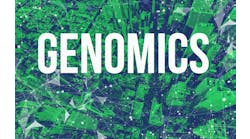Standards Bodies Launch Neuroscience Community to Power Global Data Network
The Global Alliance for Genomics and Health (GA4GH) and the International Neuroinformatics Coordinating Facility (INCF) have launched a new group to lay the groundwork for connecting global neuroscience and genomic data.
GA4GH is an international, not-for-profit alliance formed in 2013 to accelerate progress in human health by expanding responsible use of genomic data. The INCF network serves as a forum to collaboratively coordinate global neuroinformatics activities that guide and oversee the development of standards, best practices, ontologies, and other unifying activities.
The new GA4GH & INCF Neuroscience Community is seeking to unite collaborators from around the world to share best practices and improve standards that will expand responsible use of neuroscientific data, including genomic data.
In a press release, GA4GH explained that progress has been slow to tailor healthcare for neurodivergent people and neurological patients. In part, that’s because researchers need lots of many different types of data to answer neuroscience questions.
“To fully understand just one neurological patient or research participant, you need brain images, genomic sequences, gene expression data, socio-cultural factors, test results showing how they metabolize drugs, their overall health history and their family’s, and biomarker data like health and weight. Then add a detailed work-up of their phenotype, or the traits, behaviors, and symptoms they show,” said neuroscientist Randy McIntosh, in a statement. He is co-lead of the GA4GH & INCF Neuroscience Community, deputy chair of the INCF Governing Board, and professor at Simon Fraser University. “Now multiply that amount of data by thousands of people, which you need to get real predictive power in a study,” he added.
A single organization is unlikely to collect or manage so much data. Yet sharing data between groups is difficult, in part because stewarding someone’s data means taking great care to protect their privacy, wishes, and legal rights.
The group described one solution as “data visiting.” Instead of downloading a data file and transferring it to a faraway scientist, data visiting involves a scientist visiting the data where it lives. To visit the most data possible, you need a federated network that allows you to study data housed in many different locations all at once.
The GA4GH & INCF Neuroscience Community plans to connect international partners to develop the standards, collaborations, and systems needed to power data visiting across a global network.
Groups like the Wellcome-funded Brain Research International Data Governance & Exchange Program (BRIDGE) — a Neuroscience Community member — are studying how to properly follow laws and regulations when making data available worldwide. BRIDGE works with partners in Brazil, the United States, South Africa, Switzerland, and the UK to develop resources for governing neuroscience data.
“Conditions and diseases don’t respect borders. If we want the lives of people with neurological conditions to improve, we can’t just look at data from one hospital or even one country. We have to study diverse data from around the world. With data visiting powered by federation and Global Alliance for Genomics and Health standards, clinicians and researchers can vastly expand their pool of data — while data stewards rest easy knowing they are protecting rights and following regulations,” said Peter Goodhand, CEO of GA4GH, in a statement.
The new Neuroscience Community is one of several Communities of Interest founded in recent years by GA4GH. These groups bring together global experts who focus on a specific topic, and who are eager to connect across borders and find a path to better data use.
“Great work is happening all over the world to understand neurological conditions, including their genomic underpinnings. The GA4GH & INCF Neuroscience Community will ensure that all those experts are sharing best practices, developing interoperable standards, and building connections across data,” said Angela Page, GA4GH director of strategy and engagement, in a statement. “People with neurological conditions have advocated for and deserve a global data network that will lead to better healthcare and improved quality of life.”


